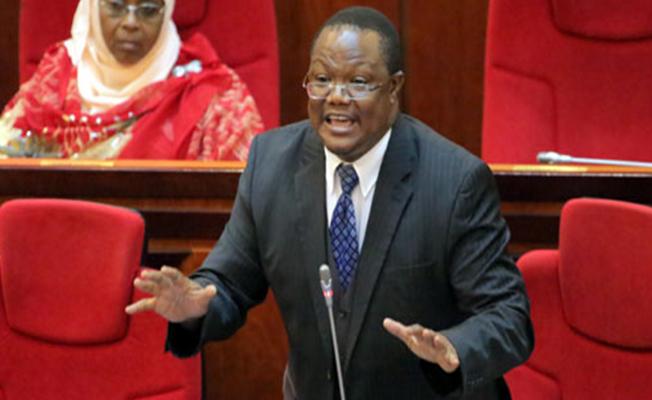Tundu Lissu’s Self-Representation in Treason Trial: A Turning Point for Tanzanian Politics
Tanzanian opposition figure Tundu Lissu has recently been authorized by a Dodoma court to act as his own legal counsel in a widely publicized treason trial. This ruling arrives amid escalating friction between the ruling party and opposition forces, reflecting the intricate and often tense political environment within Tanzania. Known for his outspoken criticism of President Samia Suluhu Hassan’s government and as a leading member of the Chadema party, Lissu has encountered numerous legal battles since returning from exile. The unfolding trial is being closely scrutinized both domestically and internationally, with many viewing it as a litmus test for democratic freedoms and political pluralism in Tanzania.
Empowering Opposition Voices: The Significance of Lissu’s Legal Independence
The court’s decision permitting Tundu Lissu to represent himself marks an unprecedented moment that could redefine how opposition leaders engage with Tanzania’s judicial system. This move not only highlights Lissu’s resolve to personally confront the charges but also raises broader questions about judicial impartiality in politically sensitive cases. In a nation where dissent is frequently met with harsh reprisals, this development may embolden other opposition figures to assert their rights more vigorously.
By taking control of his defense strategy, Lissu might harness his legal acumen alongside grassroots support networks to galvanize public backing—potentially revitalizing Chadema’s influence ahead of upcoming elections. Beyond individual stakes, this case could spark wider debates on civil liberties, rule of law enforcement, and power dynamics within Tanzanian governance structures.
- Political Empowerment: Encouraging self-representation can strengthen opposition leaders’ agency in navigating politically charged trials.
- Judicial Transparency: The judiciary’s handling of this case will be pivotal in assessing its independence from executive influence.
- Civic Engagement: Public reaction may intensify activism around issues like governance accountability and freedom of expression.
A Closer Look at the Treason Allegations Against Tundu Lissu
Lissu faces serious accusations centered on alleged incitement during public speeches—a charge carrying severe penalties under Tanzanian law. These allegations have ignited intense discussions about where free speech ends and national security concerns begin within the country’s legal framework. Experts emphasize that understanding these charges requires examining both statutory definitions and historical precedents involving political opponents targeted through similar means.
- Treason Defined: Under Tanzanian statutes, treason encompasses acts perceived as threats against state sovereignty or stability; proving such claims demands stringent evidence standards.
- The Political Backdrop: Historically, treason charges have sometimes been wielded as tools to suppress dissenting voices within Tanzania’s multiparty system.
- Legal History: Previous cases reveal mixed outcomes—some defendants faced harsh sentences while others were acquitted amid international pressure for fair trials.
| Case Element | Description |
|---|---|
| Treason Charge Basis | Sedition linked to public statements allegedly inciting unrest |
| Punishment Range | Court-imposed fines or imprisonment terms up to life sentence depending on severity |
| Lawsuit Strategy | Lissu exercising right for self-defense amidst complex political context |
| Bigger Picture Impact | Affects momentum within opposition movements; tests limits on political freedoms |
Paving the Way Forward: Enhancing Judicial Fairness in Tanzania
The allowance for self-representation underscores existing challenges facing Tanzania’s judiciary regarding autonomy and fairness—especially when adjudicating politically sensitive matters. To fortify judicial integrity moving forward, several reforms are advisable:
- Safeguarding Judicial Independence: Instituting transparent appointment processes insulated from partisan pressures will help ensure judges can operate without undue influence or intimidation.
- < strong >Capacity Building:< / strong > Ongoing training programs focused on human rights law , due process ,and ethical standards should be mandatory across all levels of judiciary personnel .< / li >
- < strong >Expanding Legal Literacy:< / strong > Establish community-based legal aid centers offering free consultations , alongside digital platforms providing accessible information about citizens ’ rights & court procedures .< / li >
- < strong >Promoting Civic Education:< / strong > Nationwide campaigns aimed at educating citizens about their role within democratic institutions can foster greater engagement & accountability .< / li >
- < strong >Strengthening Civil Society Partnerships:< / strong > Collaboration between courts & NGOs can enhance oversight mechanisms ensuring transparency throughout high-profile cases .< / li >
The Road Ahead: What Lies Beyond This Trial?
This landmark decision granting Tundu Lissu autonomy over his defense encapsulates broader tensions between state authority and democratic freedoms currently shaping Tanzania ’s future trajectory . As observers worldwide watch closely , outcomes here may set important precedents affecting how dissenting voices are treated legally going forward — potentially influencing electoral politics , civil society activism ,and international perceptions alike . Citizens must stay informed & engaged throughout these proceedings given their profound implications not only for one man but also for democracy ’s resilience across East Africa ’s largest economy .
